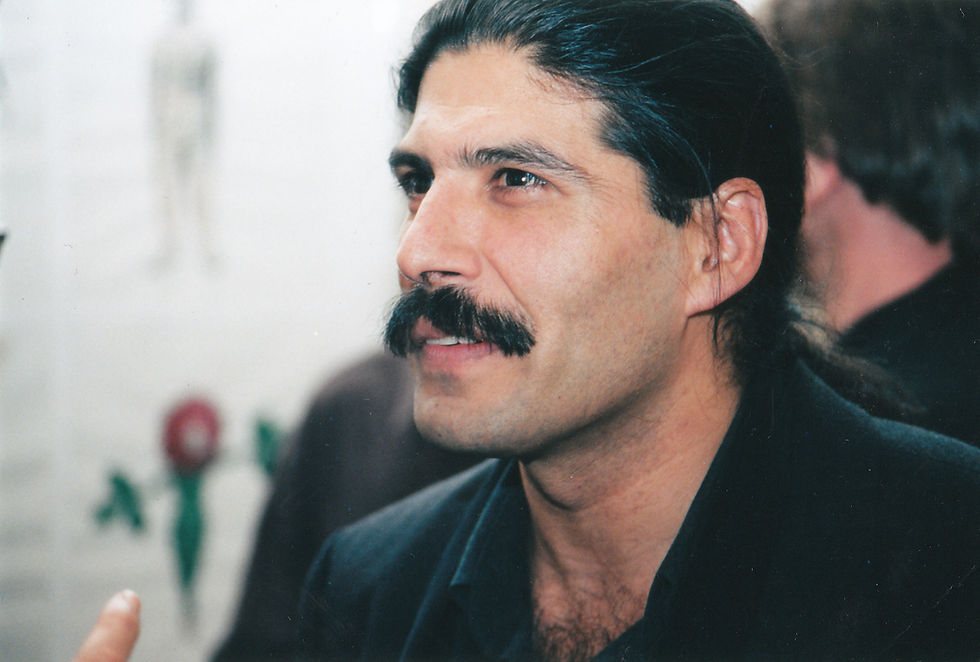Hrsito Kyuchukov
- petjerok
- May 28
- 3 min read
In the world of academia — a space historically inaccessible to many from marginalized communities — Hristo Kyuchukov has carved out a unique and powerful role. As a linguist, professor, author, and human rights advocate, he has spent decades at the forefront of Roma education and language rights. His groundbreaking work not only challenges long-standing institutional exclusions but also affirms the intellectual and cultural richness of Roma communities across Europe.
Born in Bulgaria in 1962, Kyuchukov grew up in a Romani Muslim (Xoraxane Roma) family — a background that would deeply shape his scholarly and political consciousness. From an early age, he witnessed how structural racism, poverty, and cultural erasure marginalized Roma people in every aspect of life. Yet even amid these barriers, he found in education a path forward — not just for himself, but for his entire community.
Hristo Kyuchukov’s academic journey is as impressive as it is rare. He studied psychology and linguistics, earning his PhD in psycholinguistics and later completing a second doctoral degree (Doctor of Science) in education. He became one of the first Roma in Eastern Europe to hold a professorship, teaching and conducting research at major universities in Germany, Bulgaria, and beyond.
But perhaps more importantly, Kyuchukov has always used his academic platform to serve a greater cause: the linguistic and educational empowerment of Roma children.
His pioneering research has focused on Roma language acquisition, bilingualism, and the development of teaching methods that reflect Roma cultural realities. He was among the first to scientifically study the Romani language from a pedagogical and psycholinguistic perspective, arguing for its formal recognition and inclusion in school systems across Europe.
In the 1990s, Kyuchukov spearheaded the development of Romani-language teaching materials, textbooks, and curricula, which were used to pilot Roma language instruction in Bulgaria and other European countries. This was not only a scholarly milestone, but a bold political intervention — at a time when most education systems were either ignoring Roma languages or actively suppressing them.
Throughout his career, Kyuchukov has collaborated with institutions like the Council of Europe, UNESCO, and the OSCE, contributing expert insights on minority education, language rights, and intercultural learning. His work has helped shape European policies on Roma inclusion, minority language rights, and the prevention of school segregation.
Beyond the academic sphere, he has published numerous children’s books in Romani and Turkish — often incorporating Roma folklore and stories. Through these works, he has introduced young readers to the beauty of Roma culture while challenging stereotypes in subtle yet powerful ways.
Kyuchukov is also the founder of the International Research Center for Minority Studies and Intercultural Relations and the “Roma Center for Intercultural Dialogue” — institutions dedicated to creating space for Roma-led research, debate, and advocacy.
Yet for all his accomplishments, he remains deeply grounded in his mission. In interviews and lectures, he frequently stresses the importance of Roma scholars and teachers being at the center of their own narratives. “We do not need others to speak for us,” he has said. “We have the voices, the knowledge, and the right to define our future.”
His advocacy has also taken a personal toll. For decades, Kyuchukov has faced resistance, racism, and institutional gatekeeping — experiences familiar to many Roma professionals. Yet he has responded not with silence, but with relentless scholarship, mentorship, and public engagement.
Today, Professor Hristo Kyuchukov stands as one of the most prominent Roma intellectuals in Europe. His work has changed how Roma language and education are studied, taught, and understood. More importantly, he has given countless Roma children and students the invaluable gift of seeing themselves in books, classrooms, and research.
In a time when Roma communities continue to be excluded from mainstream educational and cultural institutions, Kyuchukov’s life and legacy stand as a powerful reminder: that knowledge is not only power, but liberation. And through his example, the next generation of Roma scholars and leaders is already rising — more confident, more visible, and more determined than ever.





Comments